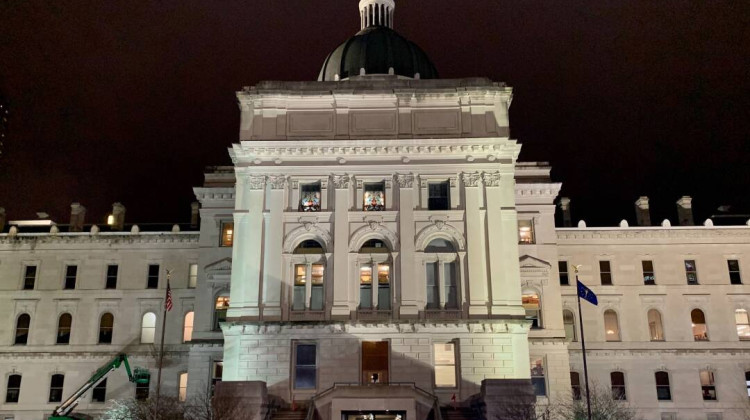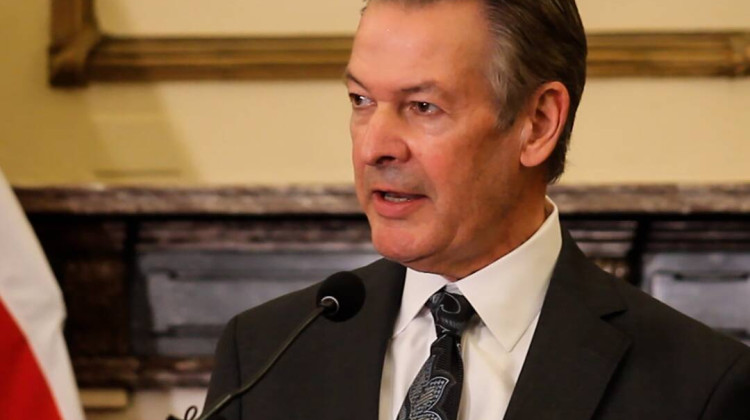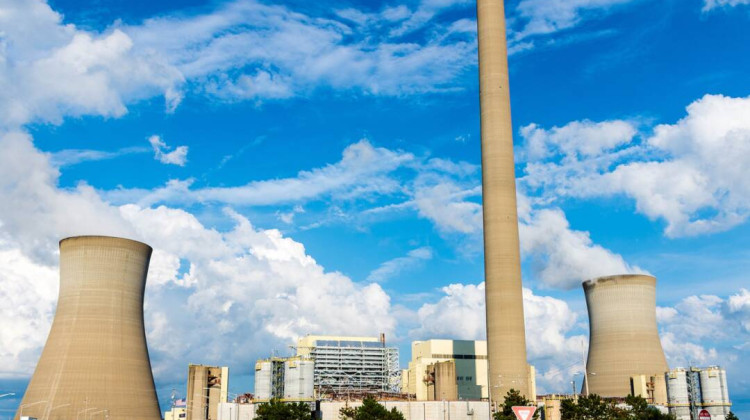
The guard tower flanks the sign at the entrance to the U.S. Penitentiary in Terre Haute, Ind., in Terre Haute, Ind., Tuesday, Dec. 10, 2019. The facility houses a Special Confinement Unit for male federal inmates who have been sentenced to death as well as the federal execution chamber.
AP Photo/Michael ConroyMICHAEL BALSAMO - Associated Press
TERRE HAUTE, Ind. (AP) — A U.S. district judge on Monday ordered a new delay in federal executions, hours before the first lethal injection was scheduled to be carried out at a federal prison in Indiana. The Trump administration immediately appealed to a higher court, asking that the executions move forward.
U.S. District Judge Tanya Chutkan said there are still legal issues to resolve and that “the public is not served by short-circuiting legitimate judicial process." The executions, pushed by the administration, would be the first carried out at the federal level since 2003.
The new hold on executions came a day after a federal appeals court lifted a hold on the execution of Daniel Lewis Lee, of Yukon, Oklahoma, which is scheduled for 4 p.m. EDT on Monday at the federal prison in Terre Haute, Indiana. He was convicted in Arkansas of the 1996 killings of gun dealer William Mueller, his wife, Nancy, and her 8-year-old daughter, Sarah Powell.
The scheduled execution, the first of a federal death row inmate since 2003, was to be carried out after a federal appeals court lifted an injunction on Sunday that had been put in place last week after the victims’ family argued they would be put at high risk for the coronavirus if they had to travel to attend the execution. The family had vowed to appeal to the Supreme Court.
The decision to move forward with the execution -- and two others scheduled later in the week -- during a global health pandemic that has killed more than 135,000 people in the United States and is ravaging prisons nationwide, drew scrutiny from civil rights groups and the family of Lee’s victims.
It has been criticized as a dangerous and political move. Critics argue that the government is creating an unnecessary and manufactured urgency around a topic that isn’t high on the list of American concerns right now. It is also likely to add a new front to the national conversation about criminal justice reform in the lead-up to the 2020 elections.
In an interview with The Associated Press last week, Attorney General William Barr said the Justice Department has a duty to carry out the sentences imposed by the courts, including the death penalty, and to bring a sense of closure to the victims and those in the communities where the killings happened.
But relatives of those killed by Lee strongly oppose that idea. They wanted to be present to counter any contention that it was being done on their behalf.
“For us it is a matter of being there and saying, `This is not being done in our name; we do not want this,’” said relative Monica Veillette.
The relatives would be traveling thousands of miles and witnessing the execution in a small room where the social distancing recommended to prevent the virus’ spread is virtually impossible. The federal prison system has struggled in recent months to contain the exploding number of coronavirus cases behind bars. There are currently four confirmed coronavirus cases among inmates at the Terre Haute prison, according to federal statistics, and one inmate there has died.
“The federal government has put this family in the untenable position of choosing between their right to witness Danny Lee’s execution and their own health and safety,” the family’s attorney, Baker Kurrus, said Sunday.
Barr said he believes the Bureau of Prisons could “carry out these executions without being at risk.” The agency has put a number of additional measures in place, including temperature checks and requiring witnesses to wear masks.
On Sunday, the Justice Department disclosed that a staff member involved in preparing for the execution had tested positive for the coronavirus, but said he had not been in the execution chamber and had not come into contact with anyone on the specialized team sent to the prison to handle the execution.
The victim’s family hopes there won’t be an execution, ever. They have asked the Justice Department and President Donald Trump not to move forward with the execution and have long asked that he be given a life sentence instead.
The three men scheduled to be executed this week had been scheduled to be put to death when Barr announced the federal government would resume executions last year, ending an informal moratorium on federal capital punishment as the issue receded from the public domain. A fourth man is scheduled to be put to death in August.
The Justice Department had scheduled five executions set to begin in December, but some of the inmates challenged the new procedures in court, arguing that the government was circumventing proper methods in order to wrongly execute inmates quickly.
Executions on the federal level have been rare and the government has put to death only three defendants since restoring the federal death penalty in 1988 — most recently in 2003, when Louis Jones was executed for the 1995 kidnapping, rape and murder of a young female soldier. Though there hasn’t been a federal execution since 2003, the Justice Department has continued to approve death penalty prosecutions and federal courts have sentenced defendants to death.
In 2014, following a botched state execution in Oklahoma, President Barack Obama directed the Justice Departmen t to conduct a broad review of capital punishment and issues surrounding lethal injection drugs.
The attorney general said last July that the Obama-era review had been completed, clearing the way for executions to resume. He approved a new procedure for lethal injections that replaces the three-drug combination previously used in federal executions with one drug, pentobarbital. This is similar to the procedure used in several states, including Georgia, Missouri and Texas, but not all.
Associated Press writers Colleen Long and Mark Sherman in Washington and Andrew DeMillo in Little Rock, Ark. contributed to this report.
 DONATE
DONATE








 Support WFYI. We can't do it without you.
Support WFYI. We can't do it without you.